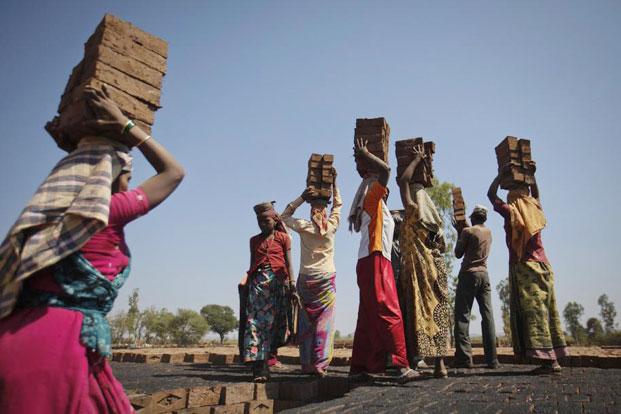Introduction
The present COVID 19 scenario has affected the labourers the most, and their mass exodus to their homelands is a manifestation of their health and subsistence crisis.
Due to this pandemic, India is reeling under huge economic crisis and now one of its major plans to emerge from this economic instability is to attract international investment from foreign firms who are looking forward to move production away from China. For this, various state governments of states like Madhya Pradesh, Uttar Pradesh, Rajasthan, Gujarat, Haryana, Uttarakhand, Himachal Pradesh have passed an ordinance for relaxing major labour laws which fall in the concurrent list, in order to afford more flexibility to employers, facilitate the ease of business and attract greater investment to uplift the economy from these doldrums. Ironically, various state governments are bringing stringent amendments to labour laws which could strip these workers of all the constitutionally guaranteed protections for their health and safety and reduce them to mere bonded labourers.
In this piece, I have sought to bring forward the various amendments in labour laws brought out by the state governments and examine how they fall away from the scope of constitution and various international treaties regarding labour protection which we are signatories of.
Section 5 of the Factories Act, 1948
The various state governments used the power conferred by Sec 5 of Factories Act, 1948 in order to legitimize their actions regarding rendering various provisions inapplicable.
According to this Act, the govt. can, for a period of three months, exempt the factories or class from various provisions of this act, in the times of a public emergency which would mean any grave emergency whereby the security of India or of any part of the territory thereof is threatened, whether by war or external aggression or internal disturbance.
When we examine this section, public emergency hereby is the security hampered by external or internal disturbances and not by any health emergency, where a lockdown is imposed due to a pandemic and Sec. 5 is in no way created to deal with a pandemic, which is not in any way a war like situation or any external aggression or internal disturbance.
In, Extra Judl. Exec. Victim. Victim Families vs. Union of India & Anr, it was held that, “an external aggression for this purpose includes a war and an armed rebellion that threatens the security of the country or a part thereof.”
The governments are scratching the law to wreak havoc on a whole lot of vulnerable labourers instead of employing it to pacify the cumbersome situation.
The Various Amendments and its Incongruity to Various Laws:
- Increase in hours of work from 9 hours to 12 hours in any day and Seventy-Two hours in any week and the rest of half an hour provided after work of continuous 6 hours.
This measure amends Sec. 51 of Factories Act, 1948 which allows only 9 hours of work per day. India is a signatory to UDHR, in which Article 24 provides “that everyone has the right to rest and leisure, reasonable limitations of working hours as well as periodic holidays with pay.”
India is also a party to the Hours of Work (Industry) Convention, 1919. Article 10 of the same says. In British India the principle of a sixty-hour week shall be adopted for all workers in the industries, in mines, and in such branches of railway work as specified for this purpose by the competent authority. Also, when a labourer is forced to work overtime, it comes within the purview of forced labour and hence liable to be struck down under Article 23 of COI.
Hence this amendment adopted by various states is at crossroads with the international treaties that India is a signatory to.
- No extra pay for extra work and in states like UP, even abolition of minimum wages.
The amendment of Sec 59 of the Factories Act which provides for double rate of wages for extra work is quashed and this has a high probability of reducing the workers to bonded labourers and violating article 23 of the constitution. A vide interpretation to forced labour has been given in People’s Union for Democratic Rights v. Union of India. It was noted that often, migrant workers are forced by their economic conditions to provide their labour even though when they know about a provision for extra wages or minimum wage. “The word ‘force’ must therefore be constructed to include not only physical or legal force but also force arising from the compulsion of economic circumstance which leaves no choice of alternatives to a person in want and compels him to provide labour or service even though the remuneration received for it is less than the minimum wage .”
In UP, under clause 3(c) of the ordinance, minimum wages will be provided to the workers under the Payment of Wages Act, 1936. But this act is repealed by the code of wages, 2019. Since this code is suspended and the former law repealed, there is no obligatory law for the factories to give minimum wages timely to the workers and in this way, their minimum wages stands suspended thus, violating Article 23 of COI and rendering it ultra vires of the Constitution.
- The Government of MP invoked section 36B of Industrial Disputes Act, 1947
Sec 36B of ID Act lays down that when the appropriate govt. is satisfied by any industrial undertaking that adequate provisions exists for dispute resolution and investigation, for the workers, it may exempt conditionally or unconditionally such establishment from the provisions of this act, which mandates adequate representation of the worker to dispute either by:
- the executive or office bearer of the trade union of which he is a member of and if not,
- then by the office bearer of any other trade union connected with the industry in which the worker is employed, in the appropriate court, for the resolution of this dispute.
This exemption is provided on the ground that these factories must have adequate provisions for this investigation. This act of the govt. is ultra vires of the act because an essential prerequisite for the quashing of this section is that some adequate alternate mechanism must be introduced by that undertaking and secondly, in a situation like this, the squashing of this entire section without any alternate in its place, is not an object of this act. And preventing a person from approaching the court is snatching away his right to seek justice.
- The Governments excluded Chapter III (Sec 11-20) of Factories Act, which deals with health of the workers
This chapter is of utmost importance as it deals with the benchmarks to be followed with respect to cleanliness, ventilation, overcrowding, etc. Since their health is always at peril due to working in this environment and with the rise of this pandemic, these safety standards are now most needed to be followed. When this basic necessity is overlooked, it violates the right to life under Article 21 of COI. It was held in Consumer Education & Research Centre and others v. Union of India and others, “that the right to health and medical care to protect one’s health and vigor, while in service or post-retirement, is a fundamental right of a worker under Article 21 read with Articles 39(e), 41, 43, 48-A and all related Articles and fundamental human rights to make the life of the workman meaningful and purposeful with dignity of person.”
- Sec 2 (1) (a) of Madhya Pradesh Industrial Employment (Standing Orders) Act, 1961 is amended replacing the words from more than 50 to more than 100 workers.
This section speaks about the application of the Act. This act is highly discriminatory as there is no difference between a worker who is working in an industry having more than 50 workers or an industry having more than 100 workers. This violates Art. 14 of COI as it classifies labourers without any reason, having no nexus with the object of the act.
- Madhya Pradesh has suspended Chapter III of the Madhya Pradesh Industrial Relations Act that deals with ‘Recognition of Representative Unions and Associations of Employers.’
This law has the effect of dismantling the trade unions which existed and the ones which would be formed now. This is clearly violative of art. 19(1)(c) of the COI. It was held in Damyanti Naranga vs. the Union of India and Others “that the right guaranteed by Article 19(1)(c) cannot be confined to the initial stage of forming an association. The right can be effective only if it is held to include within it the right to continue the association with its composition as voluntarily agreed upon by the persons forming the association.”
Also, since most of these provisions are at crossroads with the central legislation, without the assent of the president these ordinances cannot become operative, as according to Article 254(1) of the COI, If any provision of the State Legislature is opposed to any provision of a law made by Parliament with respect to any matter in the Concurrent List, then the law enacted by the Parliament shall prevail and the state legislation, to the extent of the opposition, be void and article 254(2) of COI provides an exception to this rule by mandating president’s assent on such legislations made by state. Since the assent of the president has not been secured yet, this ordinance is ultra vires of the constitution.
Conclusion
In times of a serious pandemic like this, it is the duty of everyone to contribute to bring the economy to stability. But instead of that the most vulnerable class of people have been chosen to bear the brunt of an economically devastated country. When we call our country a welfare state, fiscal growth cannot be put at a pedestal above the welfare of its citizens. Under the guise of exemptions granted for economic upliftment, the poor workers cannot be subjected to such harsh conditions, which violate articles 14, 15, 19, 21, and 23 of the Indian constitution and hence according to art. 13(2) of COI, such ordinances that violate the fundamental rights of the citizens are liable to be quashed. The govts in any way cannot tread into limited areas.
According to labor and gender experts, “this measure will push more women out of work, causing a further decline in Female Labor Force participation. Due to extended working hours, many women will be forced to withdraw from the labour forces. With household income shrinking, their family decision-making power would take on a blow.”
There are ways by which this problem could have been rectified in a better way. Instead of increasing the hours of work, two shifts of work of 8-8 hours each could have been adopted by different workers, which could have increased employment as well. Instead of suspending the health provisions, more stringent safety provisions should have been provided so that during the time of coronavirus, the labourers don’t become infected and continue their work with even more efficiency. Tripartite consultations between employers, labour union, and state should have been instituted in order to prevent the upheavals that these unions could raise due to their underrepresentation and with consensus; better solutions could have been arrived at.
Hence quashing these ordinances which are oppressive to the workers will prevent us from “pushing back to medieval barbarism and slavery.”
BY,
Priyanka Singh
Pursued LLM from National Law University, Odisha



